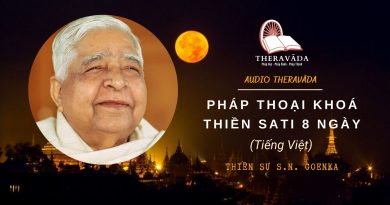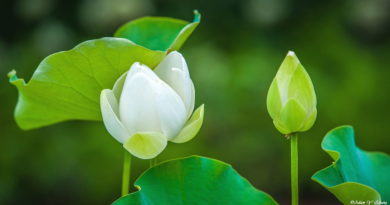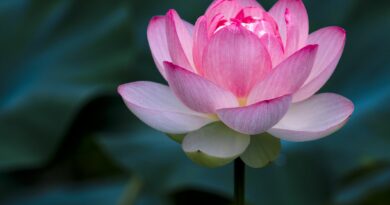Mahasi Meditation Center In Yangon Myanmar
MAHASI MEDITATION CENTER
Buddha Sasana Nuggaha Organization
16 Sasana Yeiktha Road
Yangon, Myanmar
Tel: 50392 / 52501
Cable: Mahasi Yangon
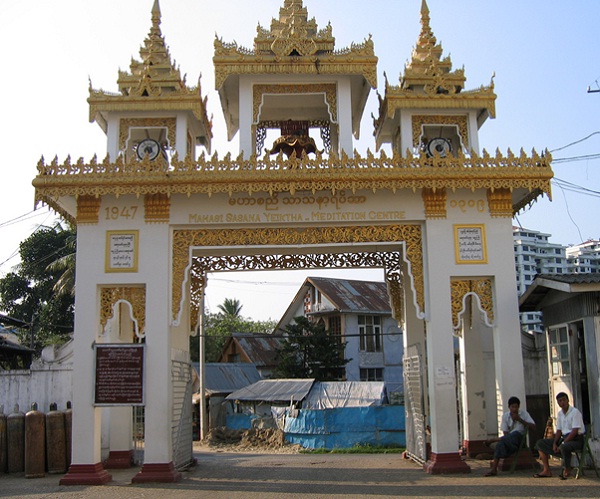
Buddha Sasana Nuggaha Organization was founded in 1947 in Burma (now Myanmar) with the object of propagating the Buddha Sasana (i.e. Teaching of the Buddha) through scriptural learning and practice of Vipassana (Insight) meditation. None-profit in character, it operates the Mahasi Meditation Center with subscriptions from its members and voluntary donations (Dana) from devout Buddhists throughout the country.
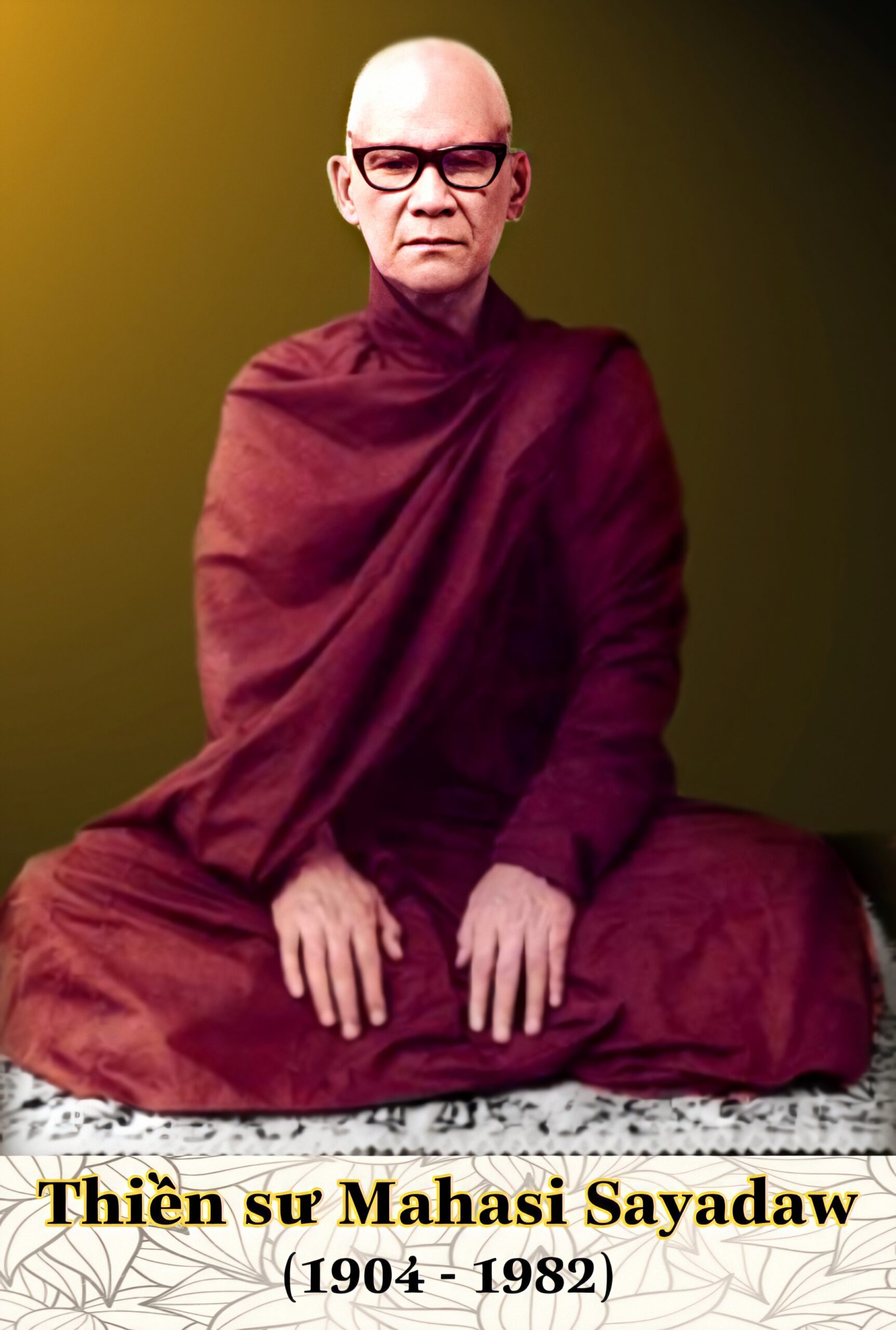
Mahasi Sasana Yeiktha
This meditation center was opened two years after the establishment of the above Organization, with the most Venerable Mahasi Sayadaw as its Principal Preceptor. It is located on approximately twenty acres of quiet pleasant garden land in Hermitage (now Sasana-yeiktha) Road, Bahan Township of Rangoon (now Yangon, off Kaba Aye Pagoda Road). There are over one hundred buildings on the grounds for housing the meditation teachers and Yogis (meditation trainees) both Bhikkhus and laity, men as well as women and providing complete retreat facilities.
How to reach the Center
The Center is within easy reach, only about twenty minutes drive by taxi from the Yangon Mingaladon International Airport, or about ten minutes by car from the Tourist Center in downtown Yangon. It is shown in Tourist guide maps and there is a prominent signboard at the junction of Kaba Aye Pagoda and Sasana-yeiktha Road to guide the visitor.
Admission And Entry Visa
Foreign Yogis seeking admission should be ready and willing to undergo full-time Vipassana meditation for about six to twelve weeks which is considered and appropriate period of retreat for one to gain a basic knowledge and experience of Vipassana meditation. Yogis from abroad intending to meditate at the Center should contact the organization in writing beforehand furnishing such particulars as their knowledge of the Buddha-dhamma and previous experience (if any) of Buddhist meditation, the name and address of the center where they have mediated and the Mediation Teacher under whom they have been trained. On receipt of such information the Organization will issue to acceptable person a “Sponsorship letter” to be attached to his or her application to the Myanmar Embassy or Consulate nearest to one’’ residence. Then only, issue of a “Special Entry Visa” for meditation for a period of six to twelve weeks will be considered by the authorities. Candidates are advised not to come with a Tourist Visa of seven days as it cannot be extended on any grounds. Processing of a Special entry Visa usually takes three to four weeks as it involves 2 or 3 government departments. It should be noted that the period of stay granted is normally intended for the practice of intensive Vipassana meditation only. Preference will be accorded to those applicants who are recommended by the Organization and teachers known to Mahasi Meditation Center.
Accommodation
Boarding and lodging are free for foreign Yogis for the entire period of their stay and practice at the Center. Accommodation for Bhikkhus (monks) laymen, Thilashins (nuns) and woman Yogis is separate and assigned on arrival. Rooms are either single or double and furnished with bed and bedding. Toilets and washing facilities are adequately provided. The Organization endeavors to provide single rooms for foreign Yogis wherever possible, but if sufficient single-room accommodation is not available, yogis are expected to share the same room with another Yogi. Yogis should provide themselves with daily personal requisites such as toiletries, towels, their regular vitamins and mineral supplements and medicines. They should also provide themselves with their own meditation cushions if they are in the habit of using them.
Meals
Either vegetarian or non-vegetarian breakfast and lunch are served in Myanmar style. Breakfast is at 5:30 a.m. and lunch at 10:00 a.m. There is no evening meal, all the Yogis at the Center, observing the Precept of abstaining from food after 12 noon. But soft drinks, jelly and Su-tu-ma-du, an emulsion containing honey, molasses, ghee and sesame oil) may be taken. Yogis will find this diet regime definitely helpful for meditative practice.
Medicare Care
There is a dispensary at the center for treatment of minor aliments open every Wednesday, Friday and Sunday form 4 to 6 p.m. Cases needing special attention will be treated at the State Hospital. Yogis preferring treatment at a private clinic will themselves have to bear the necessary expenses for the same.
Climate Condition of Yangon, Myanmar
Rainy season starts towards the end of May and lasts until first or second week of October with an average rainfall of 80-100 inches. Cool season begins about the month of November and lasts until the middle of February. Night temperature varies between 55-56 degrees F. Dry weather prevails from middle of October until end of April. Maximum temperature in the months of aril and May could reach 103-104 degrees F.
Satipatthana Vipassana Meditation
Satipatthana Vipassana Bhavana is insight meditation through mindfulness and is practiced with a view to positive realization of the truths of impermanence, suffering and impersonality of all conditioned mental and physical phenomena, especially of those phenomena as manifested in the Yogi’s own person. This way was taught by the Buddha for all who seek to grow spiritually and eventually attain enlightenment. It should not be confused with “Samantha Bhavana” which aims at tranquillity of mind and acquisition of certain psychic or occult powers.
Program of Meditation
There are no periodically scheduled or weekend Courses, but the Center is open throughout the year to receive those who are prepared to undertake full-time Satipatthana Vipassana meditation for six to twelve weeks. All lay Yogis are expected to observe the eight Precepts throughout the length of their stay, which will be explained by the Meditation Teacher at the time of introduction. The observance of those moral Precepts conduces to the development of Vipassana Insight knowledge.
At the time of their induction, a tape-recorded talk on Satipattana Vipassana Meditation, its purpose, method of practice and benefits derived there-form is played for the new Yogi.
The Daily Program of Meditation Practice
The day starts at a 3 a.m. and continues until 11 p.m. with breaks for meals, bath etc. almost the entire day is spent in silent individual meditative practice diversified with group sitting in a meditation hall. Individual sitting meditation is alternated with walking meditation. Individual interviews with the meditation teacher are scheduled at regular intervals to enable the Yogis to report their meditational experiences and to receive necessary guidance by their teacher for further progress. In addition, Dhamma discourses will be given from time to time to the practicing Yogis by the senior meditational Teachers. These discourses are meant to assist the Yogis in deepening their meditation practice. In this way each Yogi will receive personal attention and guidance throughout the entire course of meditation and will have an opportunity of gaining sufficient personal knowledge and experience of Satipatthana Vipassana Meditation through all stages of progressive Vipassana insight. N.B. All instructions and discourses for foreign yogis will be given through the medium of English of which the Yogis should have at least a working knowledge.
Nguồn: http://www.mahasiusa.org/mm.html

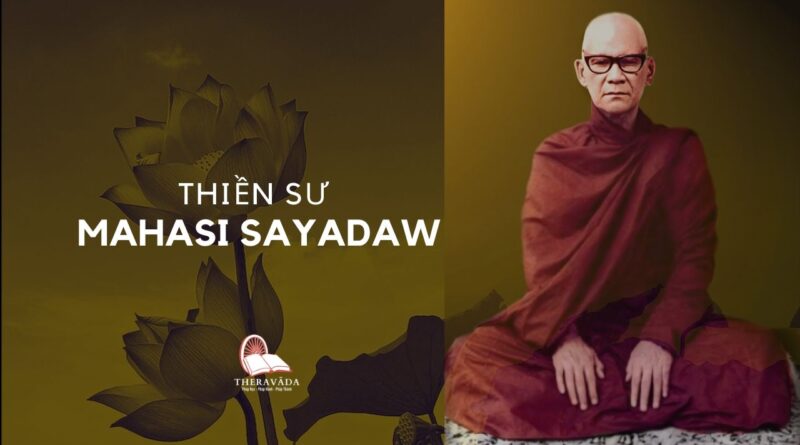
![Videos [khóa Thiền Vipassana 2017] 17. Kinh Loại Trừ Thân Kiến | Thiền Sư U Jatila 4 17 8](https://satima.net/wp-content/uploads/2020/07/17-8-390x205.png)
![Videos [khóa Thiền Vipassana 2017] 18. Kinh Khu Rừng | Thiền Sư U Jatila 5 18 9](https://satima.net/wp-content/uploads/2020/07/18-9-390x205.png)
![Videos [khóa Thiền Vipassana 2017] 16. Bài Kinh Thứ 2 Về Mười Sức Mạnh | Thiền Sư U Jatila 6 16 8](https://satima.net/wp-content/uploads/2020/07/16-8-390x205.png)
